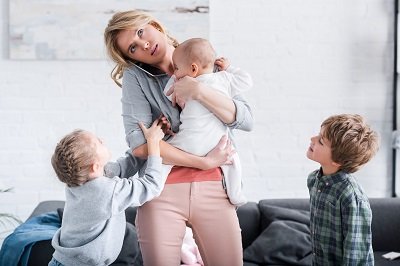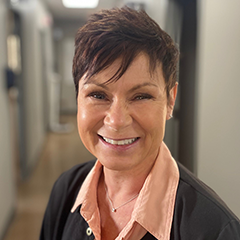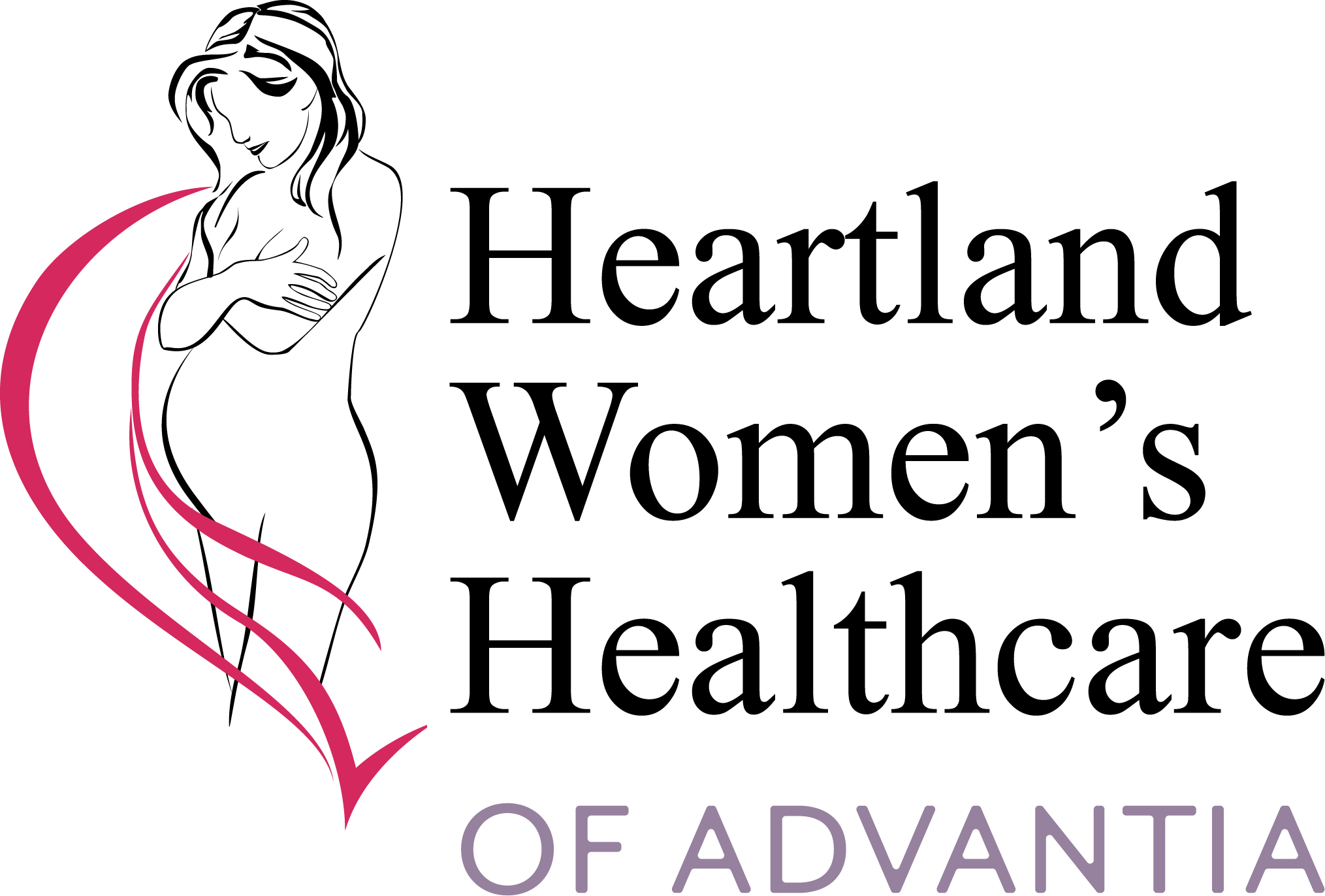It can be difficult to come to terms with the possibility there’s something wrong when everyone around you expects you to be happy. While most women expect to feel happy and excited both during their pregnancy and after their baby is born, that is not always the case. For some women, particularly if they have had a difficult pregnancy or labor experience, that joy they anticipated feeling can turn into other, less positive, emotions.
While it is natural for most women to feel stressed or anxious during pregnancy and after they give birth, roughly 1 in 7 women will experience various levels of mood swings, depression, and/or anxiety.
Some women may be more prone to experiencing postpartum depression (PPD) if they have a preexisting history of mental illness. This is especially true for those who discontinue their medications while pregnant. Always talk to your healthcare provider(s) before stopping your medications.
“Everything felt hopeless. I felt like I was the worst mom in the world and that everything I did was wrong. I finally mentioned it to my doctor and I had all the symptoms of PPD. I was so thankful to finally have a diagnosis and a plan to feel better.” -Taylor O.

Baby Blues vs Postpartum Depression (PPD)
The terms baby blues and PPD are often used interchangeably; however, they are not the same thing. Many women will experience the “baby blues” for a few days up to two weeks after they have given birth.
This is a completely normal reaction that your body has due to the surge of hormones and changing estrogen levels caused by giving birth. For first time moms, this can be a frustrating time as you are learning how to breastfeed or bottle-feed, change diapers, and more. As hormone levels settle, most moms will begin to feel like themselves again within two weeks.
PPD is a much more serious condition that affects 10-15% of women. The symptoms of PPD can begin days after giving birth, or they may not appear until up to a year later. Women who experience PPD may feel uncomfortable talking about their symptoms, emotions, or feelings because society often teaches us that new mothers are always happy.
It is so important to ask for help if you are feeling overwhelmed, or if you are feeling negative emotions. Talk to your healthcare provider(s) to develop a treatment or therapy plan that can help.
“I was 16 when I became a mom and I wasn’t ready. Back then, people thought it was normal to be overly emotional after you had a baby, PPD wasn’t really talked about. I wasn’t taken seriously because of my age, and I think that probably still happens to a lot of young girls. PPD is definitely something that needs to be talked about more.” -Nikki O.
What Are the Signs of Postpartum Depression (PPD)?
At first, it can be difficult to tell if you are experiencing signs of PPD, or if you’re feeling the normal trials of being a new parent. While it is normal to be tired, annoyed, or frustrated at times, if you are experiencing any combination of these symptoms, then it’s time to speak to your healthcare provider(s). The most common signs of PPD are:
- Depressed or sad mood
- Tearfulness
- Loss of interest in usual activities
- Feelings of guilt
- Feelings of worthlessness or incompetence
- Fatigue
- Sleep disturbance
- Change in appetite
- Poor concentration
- Suicidal thoughts
If at any point you are thinking of hurting yourself or others, reach out to the National Suicide Prevention Hotline at 800-273-8255. Help is available.
“The hardest part for me was accepting that there was a problem. I always thought PPD meant that you were just crying all the time and couldn’t function at all. Turns out being exhausted, irritable, and super forgetful fit the bill too.” -Paula H.

Can men experience Postpartum Depression (PPD) too?
Absolutely. While it was once thought of as a condition that only affected women, doctors have now realized that men can be just as affected as women after the birth of a child. 1 in 10 fathers become depressed during the first year of child-rearing.
Although the subject is not talked about as often, it is not uncommon for new fathers to feel overwhelmed, distant, and even resentful toward their new children. This can happen if the baby becomes more attached to the mother, refuses to bottle-feed, etc. These feelings are signs that the father may be experiencing paternal postpartum depression.
It is incredibly important for men to feel comfortable talking about their mental health. A strong support system is beneficial after the birth of a new baby so that family members can take turns cleaning, cooking, and caring for the little one.
If you are a new parent, regardless of your gender, and you believe that you may be experiencing symptoms of depression, talk to your healthcare provider(s). There are many treatment options available that can help.
“I felt like a jerk when I felt overwhelmed, anxious, and depressed about all of the things that came with being a dad. I love my son, but sometimes it was a lot to deal with. And I felt like I had to just be quiet and suck it up because my wife was going through so much worse.” -Jason R.
What should I do if I believe that I have Postpartum Depression (PPD)?
If you are feeling overwhelmed, stressed, anxious, depressed, or believe you may have any symptoms of PPD, talk to your healthcare provider(s). Some women may experience depressive symptoms while they are pregnant as well. In either case, our team can help navigate through the best treatment options to keep both you and your baby happy and healthy.
Heartland Women’s Healthcare offers effective help and support if you have or are likely to have mental health problems during pregnancy or the first year after birth.
Perinatal mental health support visits are available by video-based telemedicine so you can have care from the comfort and privacy of your own home.

Meet Our Provider
Anja Schifano, CNP, WHNP, PMH-C

